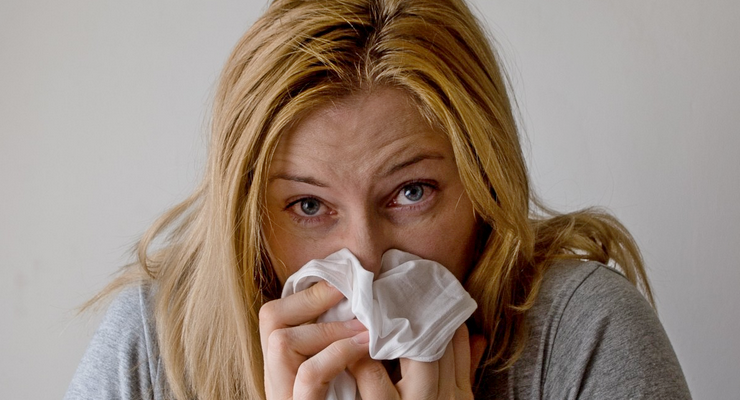
From the longer daylight hours to the start of the growing season, spring is undoubtedly on the way. Anyone suffering from cabin fever will appreciate the chance to get outdoors, although spring also brings along allergies as trees, grasses and other plants are also coming out of their winter dormancy — compounded by indoor allergies that have become more noticeable as everyone spends more time at home.
If you suffer from seasonal allergies, here are some tips to help you cope with common symptoms like nasal congestion, runny nose, sneezing, itchy and watery eyes — whether you’re indoors or out.
Know your allergens
Symptoms for seasonal allergies are known far and wide and most of the time can be treated through OTC allergy relief medicine trial and error. Generally, single-ingredient antihistamine medications don’t treat the most common and aggravating of the symptoms, nasal congestion, and some have a drowsiness side effect. Regular use of an intranasal spray, like Flonase Sensimist, can relieve your symptoms, including nasal congestion, runny nose, and itchy, watery eyes[*], with once-daily use. It will keep you going for your next great adventure.
To know for sure which allergens your symptoms are caused by, you need to see an allergist. Once the specific allergens that trigger your symptoms are identified, you can take steps to start feeling better.
“If you think you have allergies, see an allergist who can provide the right diagnosis and help you determine your allergic triggers and work with you to minimize symptoms,” says New York-based allergist, Dr. Tania Elliott. “I like to recommend Flonase Sensimist to my patients since it helps block several allergic substances[†].”
Reduce your exposure
Here are some ways you can reduce exposure to the most common allergens.
Outdoors
- Check the pollen count: Before heading outside, it helps to know what the pollen count is. You’ll enjoy being outdoors on days when the pollen count is lower — and your symptoms may flare up more on dry, windy days with high pollen counts, according to the Mayo Clinic.
- Avoid specific allergens: If certain grasses or trees are your main triggers for symptoms, try to avoid areas where those plants are growing.
- Clean up: After spending time outdoors, changing clothes and showering can help reduce your symptoms once you’re back home.
Indoors
- Filter it out: Regularly swap out your HVAC filters (for heating and air conditioning) with new ones that have a MERV rating of at least 10. Frequently changing air filters helps keep allergens at bay indoors — from dust mites to pet dander.
- Leave it at the door: Good quality door mats placed outside and inside every entrance to your home can help not only prevent dirt from being tracked in, but some outdoor allergens as well.
- Keep it clean: Dusting around your home with a damp cloth and vacuuming once a week can help reduce dust mites, as can washing your bedding and curtains in the hottest water possible for that fabric. The Asthma and Allergy Foundation of America also recommends using zippered allergy-proof casings for pillows and mattresses.
Find the most effective treatments
Even if you take all these measures to help reduce allergy symptoms, there’s no way to completely block every potential allergen from reaching you. When you’re suffering from allergy symptoms, you need complete, daily relief to help you feel better.
One of the most effective ways to get powerful allergy relief is Flonase Sensimist intranasal spray, which relieves the worst allergy symptoms, including nasal congestion — all in a gentle mist you will barely feel without causing drowsiness. Not to be confused with a nasal decongestant which is only designed to relieve a stuffy nose, Flonase Sensimist provides 24-hour symptom relief. It has been shown to be 40% more powerful than a leading non-drowsy single-ingredient antihistamine that does not treat nasal congestion[‡].
Want to learn more about recognizing and treating spring allergies? Visit Flonase.com.












